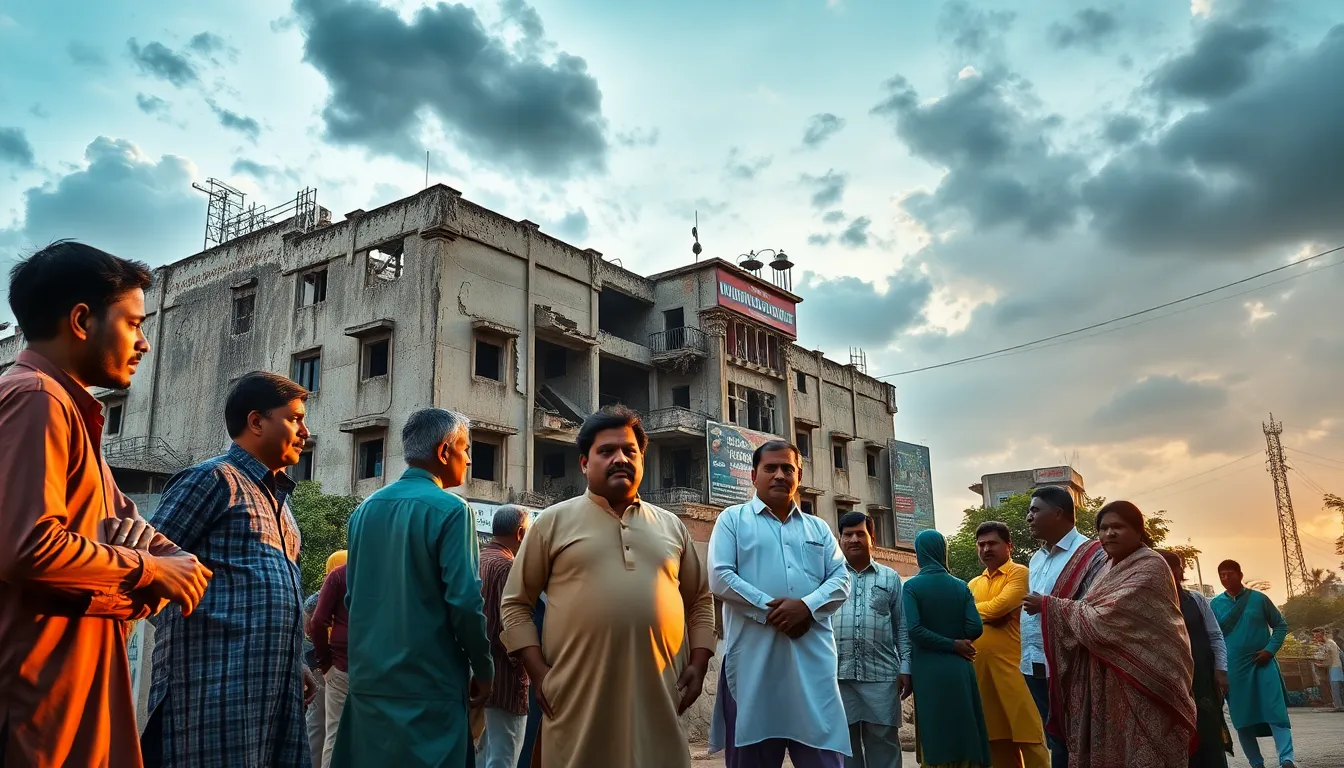The Rajiv Gandhi Shopping Complex in Deesa, Gujarat, is now in a critical condition. This complex, built 26 years ago near the Fountain Circle, has raised serious concerns among around 200 local traders. They fear for their safety and economic future due to the deteriorating structure. Despite their continuous appeals to the municipal corporation, no concrete actions have been taken to address the issue.
Traders are worried that if the shopping center collapses, it could lead to a disaster similar to the previous firecracker incident in Deesa. They believe that the blame for any mishap will fall on the local authorities who have failed to take necessary precautions.
The complex was established in 1999 with the intention of boosting urban business and employment opportunities. It was built on government land under the leadership of the then Congress municipal president, Vipul Shah. Shah has criticized the current ruling party, the BJP, for neglecting the complex, arguing that its name carries political weight and has led to its current state of disrepair.
He claims that the original purpose of the shopping center was to create jobs, but now, innocent traders are suffering. Rainwater drainage issues have arisen, causing structural damage within just 26 years. Cracks and structural shifts have become visible, prompting demands for urgent action from the municipal corporation and local government.
The traders are calling for immediate inspections and repairs to prevent any accidents. They feel abandoned and unheard, with their livelihoods hanging in the balance. The sense of fear among them is palpable, as they worry about the potential consequences if the building were to collapse.
In response to the traders’ concerns, a municipal official stated that they are aware of the situation and will conduct a thorough assessment. However, traders remain sceptical about the effectiveness of these promises, as past appeals have gone unaddressed.
The Rajiv Gandhi Shopping Complex holds historical significance as a symbol of economic hope for Deesa. Its decline reflects broader issues of urban infrastructure maintenance and the responsibility of local authorities to safeguard public welfare.
As the situation unfolds, traders continue to advocate for their safety and the preservation of their businesses. They are determined to push for action, hoping that the government will prioritise their concerns before it is too late.


Leave a Reply